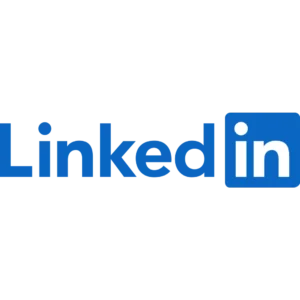edX
edX is a nonprofit online learning platform founded in 2012 by Harvard University and the Massachusetts Institute of Technology (MIT). Now operated by 2U, edX provides a wide range of high-quality courses from over 250 global institutions, including top universities and corporations. It offers more than just casual learning—its key focus areas include MicroMasters, Professional Certificates, and full online degrees. Courses are often academic in nature and can be audited for free, with paid options available for verified certificates. edX is especially popular among professionals seeking to enhance their qualifications and among students looking to study real university-level material. With a focus on accessibility, learners can study at their own pace with video lectures, quizzes, and discussion forums. edX’s commitment to open-source technology and inclusive education has made it a respected name in both academic and corporate learning environments. It is considered one of the pioneers in the Massive Open Online Courses (MOOCs) movement.
Description
Introduction
In the world of online education, edX stands out as a pioneer. Launched in 2012 by Harvard University and MIT, edX was built to bring university-level education to the masses. It has since evolved into one of the most respected MOOC (Massive Open Online Course) platforms, offering high-quality learning experiences from top institutions worldwide.
Whether you’re a student aiming to boost your resume, a working professional pursuing career growth, or someone just passionate about learning — edX offers a structured, academic-style approach that suits lifelong learners.
Platform Highlights
edX offers more than just video lessons — it brings an immersive academic experience into your hands. Here are the features that make edX shine:
-
University-Level Courses: Courses from top institutions like Harvard, MIT, Berkeley, and Oxford.
-
Professional Certifications: Earn verified certificates, MicroMasters, and Professional Certificates.
-
Flexible Learning: Learn at your own pace or join instructor-led cohorts.
-
Affordable Degrees: Fully online Bachelor’s and Master’s degrees from accredited universities.
-
High-Caliber Instructors: Courses led by professors and industry leaders.
-
Audit for Free: Most courses are free to audit, with the option to pay for a certificate.

User Experience
Navigation and Interface
edX sports a clean, professional, and academic design. The website is easy to navigate with intuitive menus, course filters, and search capabilities. The dashboard organizes your learning journey with upcoming tasks, grades, and deadlines — very helpful for staying on track.
Accessibility
The platform supports screen readers, keyboard navigation, and closed captions, ensuring accessibility for all learners.

Course Quality
Diverse Subjects and Expert Instructors
edX offers over 3,500+ courses across disciplines:
-
STEM: Computer Science, Data Science, Engineering, Math
-
Business: Management, Marketing, Finance, Entrepreneurship
-
Humanities: History, Literature, Ethics, Philosophy
-
Health: Public Health, Biology, Medicine
-
Language: English, Spanish, Mandarin, more
Courses are created and taught by university professors and industry professionals, ensuring both academic rigor and real-world application.
Best For:
-
College students and graduates preparing for higher studies or certifications.
-
Working professionals upgrading skills or transitioning careers.
-
Lifelong learners interested in university-level knowledge.
Pricing and Plans
Audit for Free
Almost every edX course is available to audit at no cost — you get access to all course materials except graded assignments and certification.
Paid Certifications
-
Verified Certificates: ~$50–$300 per course
-
Professional Certificates: ~$300–$1,000
-
MicroMasters: ~$1,000–$2,500
-
Online Degrees: ~$10,000–$25,000 (depends on program and institution)
Are They Worth It?
Yes — especially if you’re aiming to showcase certifications on LinkedIn or your resume. edX credentials are recognized by employers and institutions around the globe.
Pros and Cons
Pros:
-
🎓 University-grade education from world-renowned institutions
-
📚 Free audit options for most courses
-
🧑🏫 Taught by experts in academia and industry
-
🧾 Recognized certifications and degrees
-
🌎 Global learning community and support
Cons:
-
💸 Paid certificates can be pricey for some users
-
⏳ Academic structure may feel rigid for casual learners
-
🎯 Limited interactivity compared to some skill-based platforms
Learners View Verdict
After thorough testing and user feedback, edX earns a top score in terms of course quality, credibility, and academic value. It’s one of the few platforms offering access to Ivy League education without the Ivy League price tag (if you choose the audit path).
While it may not be ideal for those seeking hands-on, fast-paced learning (like coding bootcamps), edX is highly recommended for learners who want depth, structure, and university-level recognition.
FAQs
1. Can I really learn for free on edX?
Yes! You can audit most courses for free — access all materials except graded assignments and the certificate.
2. Are edX certificates recognized by employers?
Absolutely. Verified certificates and professional programs from edX are respected and often included on resumes or LinkedIn.
3. How long do edX courses take?
Most courses run for 4–12 weeks, with 3–6 hours of effort per week. Some programs (like degrees or MicroMasters) take months or even years.
4. Is edX good for career switching?
Yes. edX’s Professional Certificates and MicroMasters programs are excellent for building new skills or preparing for advanced education in a new field.
5. Do I need to be a college student to take edX courses?
Not at all. edX is open to everyone — from high school graduates to seasoned professionals.
Conclusion
If you’re looking to boost your career, deepen your knowledge, or pursue a degree online, edX provides one of the best platforms for structured, university-backed learning.
Explore edX now on their official site: www.edx.org






